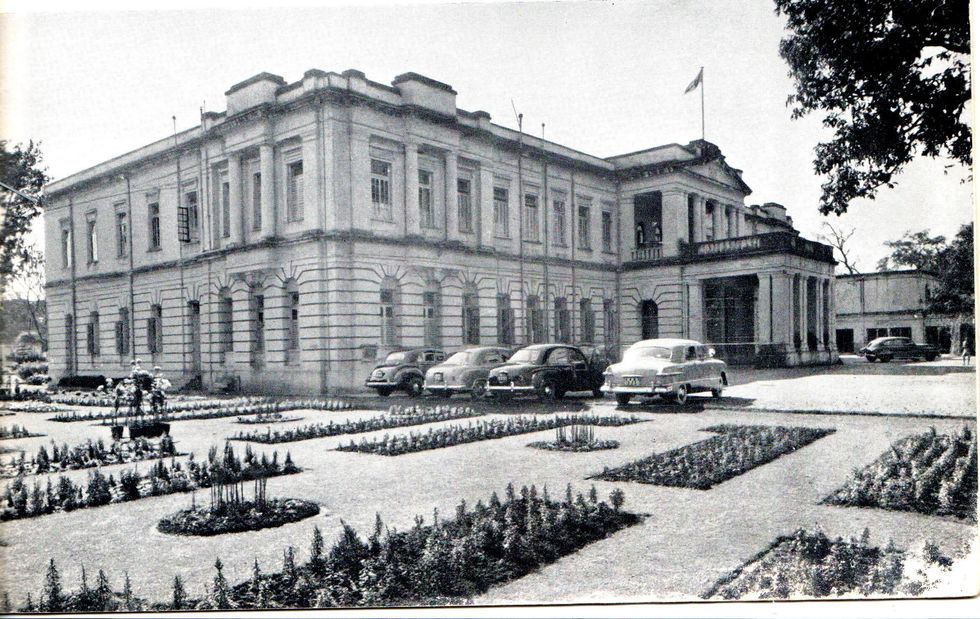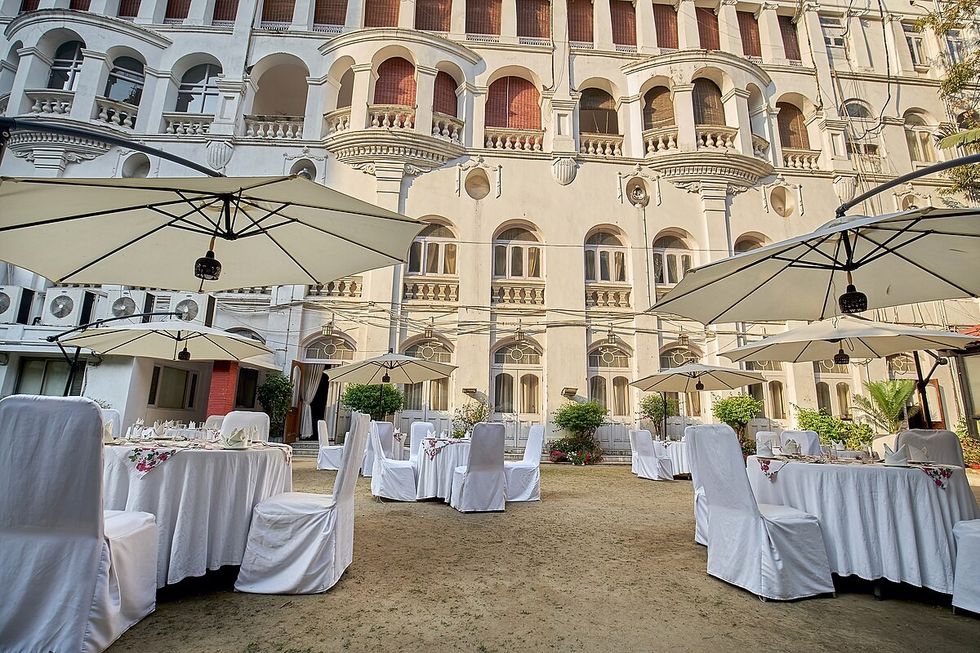THE British departed India when the country they had ruled more or less or 200 years became independent in 1947.
But what they left behind, especially in Calcutta (now called Kolkata), are their clubs. Then, as now, they remain a sanctuary for the city’s elite.
One evening, I am invited to dinner at the Bengal Club by a friend, Devdan Mitra, deputy editor of the Telegraph, an English-language newspaper. The club, the oldest in India, will celebrate its 200th anniversary in February 2027.
Devdan’s position as a member of the food sub-committee is an exalted one, for the Bengal Club prides itself on its culinary excellence. It has a reputation for its lobster thermidor, though I am happy with the grilled beckti.
The beckti, or barramundi fish, is known by many names around the world, including giant perch and Australian seabass.
“Our beckti is the fresh river variety, not sea beckti, which isn’t as nice,” says Devdan.

For dessert, I am persuaded to share a soufflé with him.
Once upon a time, Indians were not allowed into the club, as Lord Minto discovered when he invited Sir Rajendra Nath Mookerjee, a Bengali nobleman, to dinner in 1906. “But he’s my guest,” protested Minto when the doorman barred the Indian from entering the premises.
The doorman was not impressed that Minto was viceroy and governor-general of India (from November 1905 to November 1910).
“Rules are rules,” he said.
An embarrassed Minto promised his guest: “I will get you the land to start your own club where there will be no discrimination.”
In such a manner was the Calcutta Club born in 1907. Its first president was the Maharajah of Cooch Behar, Sir Nripendra Narayan. The Prince of Wales, later King Edward VIII, had lunch at the club on December 28, 1921.
Today, the club has a ‘Nirad C Chaudhuri corner’, housing rare books, paintings and awards that had once belonged to the eminent author who spent the last decades of his life in Oxford.

In fact, I actually rescued his belongings when they were about to be stolen and arranged for them to be shipped to the Calcutta Club after the author died in Oxford in 1999. But that is another story.
Meanwhile, in the dining room of the Bengal Club, the turbanned waiters were moving about like Jeeves. I asked Devdan about one of the several portraits of Englishmen that still hang in the club. It was that of Charles Metcalfe, the son of a major general who was the club’s second president and held the post for 11 years until 1838.
The Bengalis have decided not to take down the portraits of those who once lorded it over India.
“They are part of our history,” Devdan points out.
As I leave, I notice a marble plaque which says the Bengal Club had once been Lord Macaulay’s house. He had considered it to be “the best in Calcutta”.
I believe it’s the same (Thomas Babington) Macaulay who once boasted: “A single shelf of a good European library was worth the whole native literature of India and Arabia.”
Part of me wishes the British had settled in India and, in time, said the opposite of Rishi Sunak: “Of course, I am Indian.”
















 LONDON, ENGLAND - JUNE 22: Baroness Floella Benjamin speaks during the unveiling of the National Windrush Monument at Waterloo Station on June 22, 2022 in London, England. The photograph in the background is by Howard Grey. (Photo by John Sibley - WPA Pool/Getty Images)
LONDON, ENGLAND - JUNE 22: Baroness Floella Benjamin speaks during the unveiling of the National Windrush Monument at Waterloo Station on June 22, 2022 in London, England. The photograph in the background is by Howard Grey. (Photo by John Sibley - WPA Pool/Getty Images)

 Ed Sheeran and Arijit Singh
Ed Sheeran and Arijit Singh Aziz Ansari’s Hollywood comedy ‘Good Fortune’
Aziz Ansari’s Hollywood comedy ‘Good Fortune’ Punjabi cinema’s power-packed star cast returns in ‘Sarbala Ji’
Punjabi cinema’s power-packed star cast returns in ‘Sarbala Ji’ Mahira Khan
Mahira Khan ‘Housefull 5’ proves Bollywood is trolling its own audience
‘Housefull 5’ proves Bollywood is trolling its own audience Brilliant indie film ‘Chidiya’
Brilliant indie film ‘Chidiya’  John Abraham
John Abraham Hina Khan and her long-term partner Rocky Jaiswal
Hina Khan and her long-term partner Rocky Jaiswal  Shanaya Kapoor's troubled debut
Shanaya Kapoor's troubled debut Sana Yousuf
Sana Yousuf

